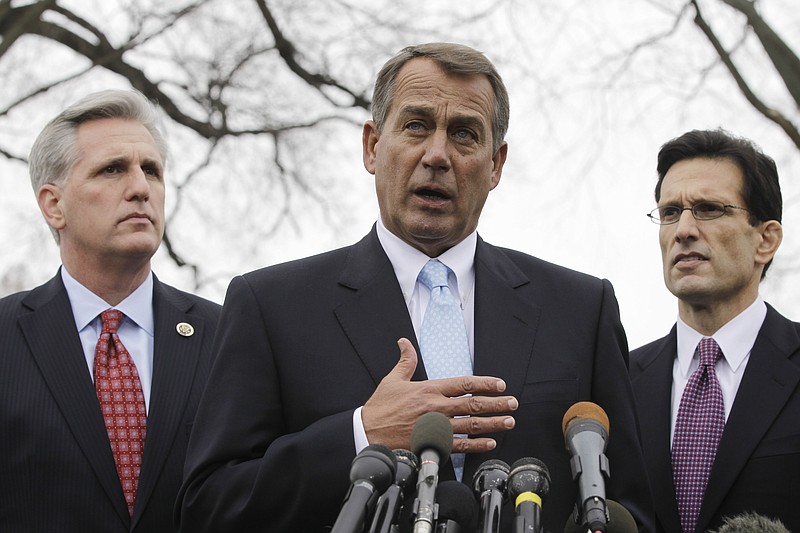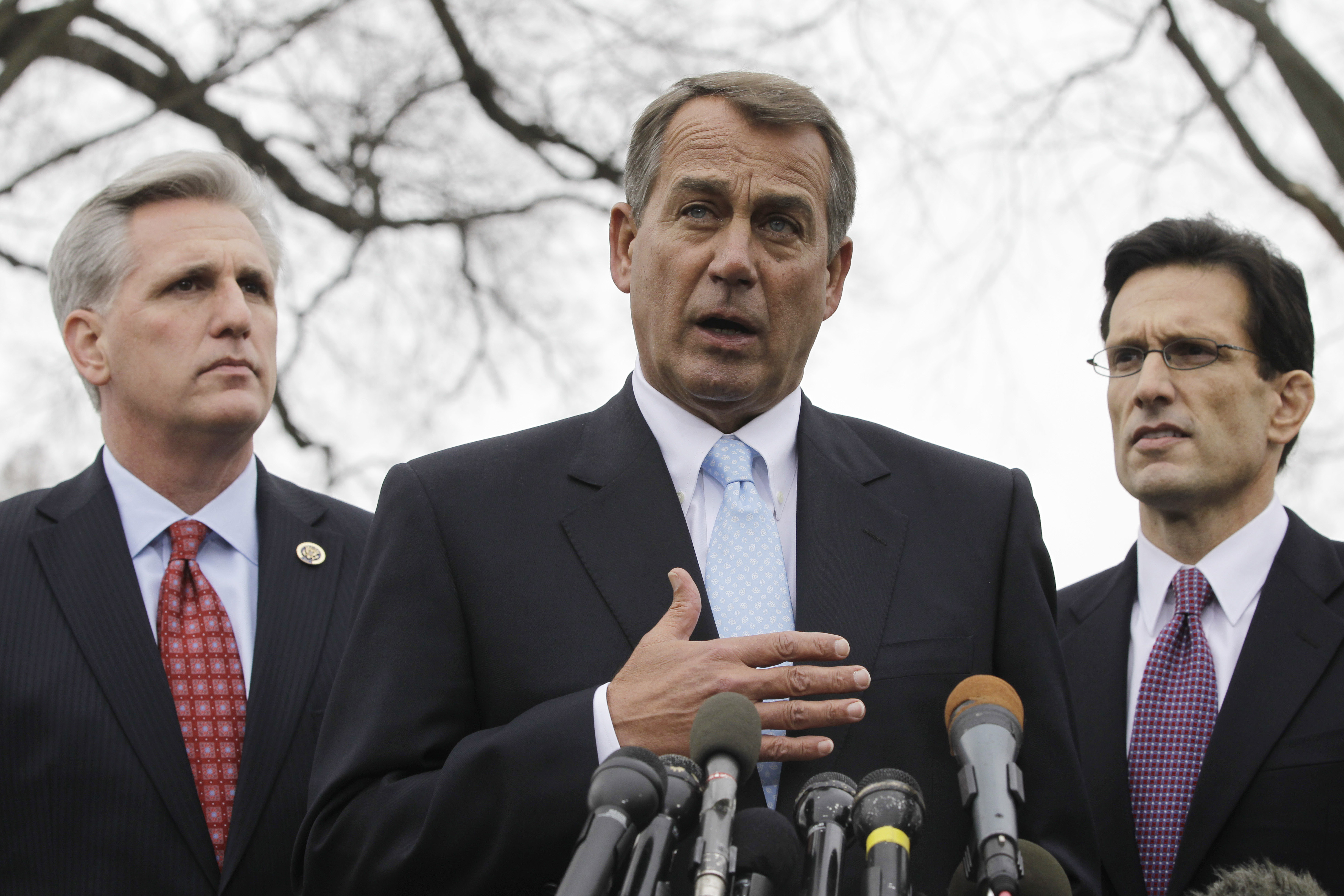ANDREW TAYLOR, Associated Press
WASHINGTON - The GOP-controlled House handily passed legislation Tuesday to cut the federal budget by $4 billion and avert a partial shutdown of the government for two weeks.
The measure was approved by a bipartisan 335-91 vote that came shortly after Democrats in the Senate said they would go along. The White House had sought a four-week or longer stopgap bill but that effort fizzled shortly after it began.
The measure the House passed buys time for more difficult talks on a longer-term measure. House Republicans last month approved a measure to cut $61 billion from agency operating budgets over the second half of the fiscal year that expires Sept. 30. That bill is strongly opposed by Democrats, and the White House promises a veto.
The $4 billion in cuts are some of the easiest for Congress to make, hitting accounts that President Barack Obama already has proposed eliminating and reaping some of the money saved by earlier moves by Republicans to ban lawmakers from "earmarking" pet projects back to their districts and states.
Yielding to the inevitable, Senate Democrats said they would go along. Senate Majority Leader Harry Reid told reporters he expected the two-week bill to go to Obama for his signature within 48 hours.
"We'll pass this and then look at funding the government on a long-term basis," Reid said.
Passage of the short-term measure will set a two-week time frame for negotiations on a bill to keep the government running through Sept. 30. The White House and leaders of both parties in both houses will be involved in the talks.
Earlier Tuesday, the White House pressed for $8 billion in immediate spending cuts as part of a four- or five-week stopgap measure.
"We do believe that if $4 billion in cuts over two weeks is acceptable, that the $8 billion over four or five weeks is something that we could agree on," said presidential Press Secretary Jay Carney.
The White House trial balloon was quickly popped.
"If there had been a conversation about this 10 days ago or two days ago, we might have had something to talk about." Republican House Speaker John Boehner said earlier. "But the fact is we were forced to move on our own."
Tuesday's bill, which now goes to the Senate, is a relatively mild volley in a party-defined spending battle that promises to go on for months or years.
Republicans want to slash more than $60 billion from agency budgets over the coming months as a down payment on larger reductions later in the year, but are settling for just $4 billion in especially easy cuts as the price for the two-week stopgap bill.
"These cuts reflect this Republican majority's continued commitment to significantly reduce spending, rein in the nation's exploding deficits and debt, and to help our economy continue on the road to recovery," said House Appropriations Committee Chairman Harold Rogers, R-Ky.
Negotiations over a longer-term solution are likely to be very difficult as Boehner seeks to satisfy his 87-member freshman class - many of whom were elected with tea party support - but still manage to reach a deal with Democrats controlling the Senate and the White House.
"All of us know that cutting spending of Washington, D.C., never happens. And so to think that we're going to have significant cuts in spending levels - it's not going to be easy," Boehner told reporters. "I understand that. Senator Reid understands that. But I think all of us know that we are going to cut spending."
Tuesday's House measure would keep most federal agencies running at last year's spending levels through March 18, in line with two prior bills passed last year under Democratic control of Congress. The cuts include Army Corps of Engineers water projects, homeland security earmarks and $650 million claimed by not repeating a one-time injection of general fund money into highway programs.
Senate Democrats and the White House have reservations about the measure because it's clear it will take longer than two weeks to reach agreement on the broader spending bill and because the $4 billion in cuts over two weeks is the same pace as cutting $60 billion through the Sept. 30 end of the budget year.
Democrats say the larger GOP measure would lead to furloughs of thousands of federal workers, pull money out of the economy and risk slowing the fragile recovery. The cuts are far more dramatic than attempted under prior GOP control of Congress, and would hit or eliminate hundreds of programs, including education, food inspection, health research, environmental regulation and public broadcasting, among many others.
At the same time, Republicans in the Senate have leverage that may prompt Democrats in the chamber to go along. Democrats control the Senate with 53 votes, but at least a handful advocate immediate spending cuts and appear unwilling to support a short-term spending bill at current levels.

